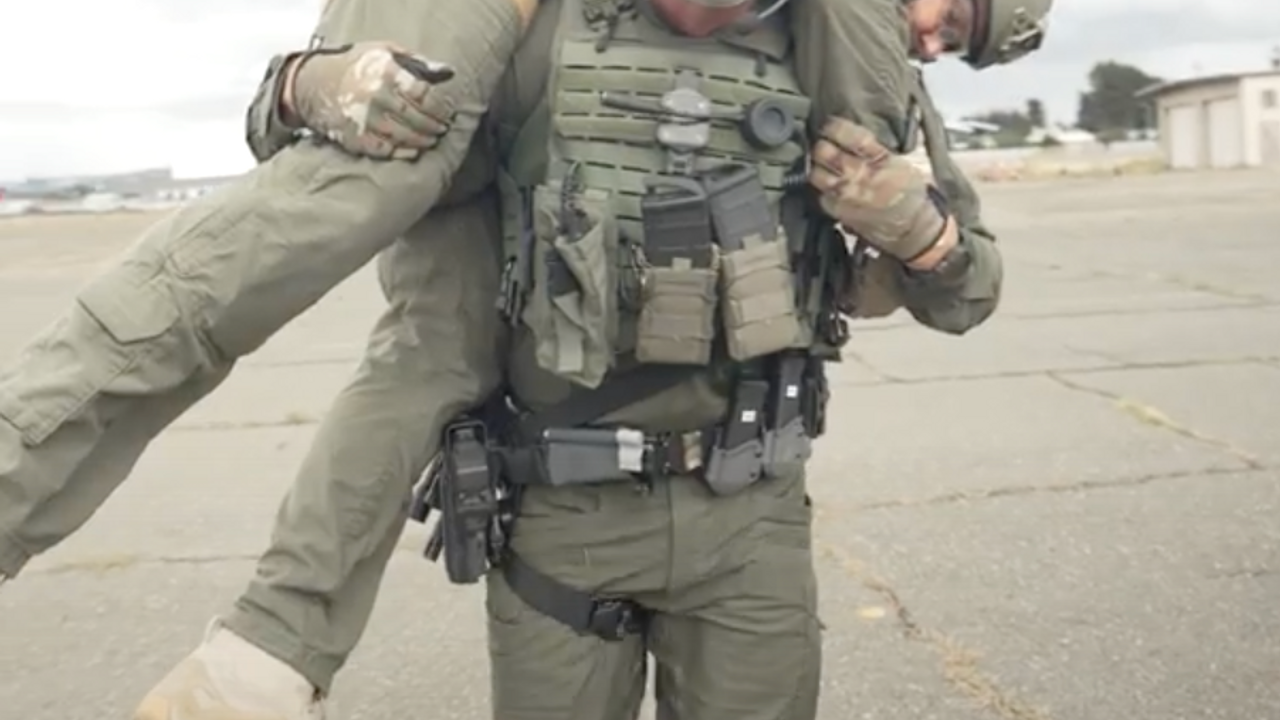Your Body and Brain on Booze
Oct 09, 2022
I recently competed in a SWAT competition which was a two day event consisting of a day of scenarios involving role-players and NLTA (non-lethal training ammo), followed by a day of shooting and physical fitness events.
As part of my preparations for this, I took a month off from drinking any type of alcohol. Since many are currently embarking on the “Sober October” challenge, I felt now was the perfect time to write this blog post.
Excessive alcohol consumption has always been a part of the worlds I’ve lived in.
As an Army 2nd Lieutenant, I (along with everyone I was around) would binge drink every day of the week, then get up at 4:30 am, work out, go about the day, work out a second time, and repeat the whole process again and again (during that time of my life, I was setting new strength PRs and running sub 6:00 miles at almost 5,000 ft of elevation).
And of course, cop parties/weddings never have a shortage of alcohol. This societal celebration of alcohol consumption is, simply put, super bad for us. There’s no shortage of irony in being part of the military/LE world, which is always talking about the importance of fitness and being a physical machine, yet both worlds glorify something that’s so harmful to those end goals.
View this post on Instagram
As I’ve gotten older, I’ve cut back drastically on alcohol consumption, and cutting it out completely for a month was a good exercise in discipline. Once the SWAT competition was over, I went back to the periodic beer or two in the evening. However, I definitely noticed a difference in how I felt the morning after (mind you, this was not me getting drunk, but just having a beer or two). I felt much more tired and sluggish (despite not being hung over, and not having been intoxicated the night before).
I know from a recent in-service training at my PD that alcohol actually disrupts your ability to get quality REM sleep.
There’s a misconception that alcohol is a sleep-aid due to the sedative properties consuming alcohol has on many people. While it may help you knock out faster, as the night wears on, your body goes through the process of metabolizing the alcohol, and your sleep cycles are a casualty of this process.
I’m not going to go into the science of it–I’m a beat cop, not a researcher or a scientist, but here’s what you need to know, in the most basic terms: Alcohol is bad for your sleep.

I’m not going to tell you to completely cut out alcohol. I’m simply pointing out that your sleep is incredibly important, and alcohol DOES negatively impact your ability to get quality sleep. If you’re going to drink, avoiding getting above a .08 BAC is a good start, and the general consensus seems to be that having your last call four hours before bedtime gives your body time to metabolize the alcohol.
Besides sleep, there are some impacts on your workout recovery (of course, since this blog is for a fitness-specific page, we’ve got to hit on that). Anyone who has had a hangover knows this makes working out a pretty unattractive activity while you’re feeling like that. And we just went over what alcohol does to your sleep (and we know sleep is essential for proper recovery). There are other studies that point to the issues with alcohol consumption as it relates to our athletic performance. These studies range from drinkers not properly fueling back up (as a result of consuming a bunch of carbs in beer form), to getting dehydrated (since alcohol is a diuretic, which is a fancy word for “I need to pee”). Other studies demonstrate that our ability to absorb certain nutrients, or recover from workouts (or even injuries) are slowed. Once again, I’m not going to get into the nitty-gritty of these studies, there are plenty out there for you to look up. The takeaway is that alcohol consumption (particularly in excess) has a negative impact on “the gains.”
Apart from sleep and athletic performance, taking a break from alcohol is a discipline-builder.
Anyone who has followed me on social media, or read any of my other blog posts knows that I’m big on mindset, discipline, Stoic philosophy, etc. There’s a certain sense of accomplishment I took from declining alcohol for that whole month leading up to the SWAT competition, and I think there’s a lot of growth that happens when you complete an alcohol-free challenge like that. One of my favorite sayings is “choose the hard no over the easy yes,” and there’s some carryover from completing a challenge like “sober October” or “dry July” to developing the discipline necessary to keep you on a certain path. It’s so easy in a social setting to keep knocking back another drink–it requires discipline to either stop or abstain completely.
To be clear, the point of this is not to tell you that you must do some “abstain from alcohol for X amount of time” challenge (while I do think it is a good personal test). Neither is the point to tell you how much to drink or tell you how to live your life. It is to remind you of some immutable truths:
- Alcohol is, scientifically speaking, toxic.
- Our worlds (whether Mil/LE/regular everyday dude/dudette) encourage consuming alcohol, usually in excess.
- Alcohol hurts our ability to sleep.
- Alcohol hurts our athletic ability.
At the end of the day, the choice is yours on how alcohol consumption fits into your personal calculus. Making a drastic change (like cutting out alcohol completely because you read a blog post) is often the least effective way to make the change a permanent one.
We simply encourage you to make good choices, and make sure those choices keep you on a path of constant improvement.
Thanks for reading!
If you enjoyed this article, please give our admin at @policepoststraining a follow and enjoy the training knowledge and experience shared!
View this post on Instagram

